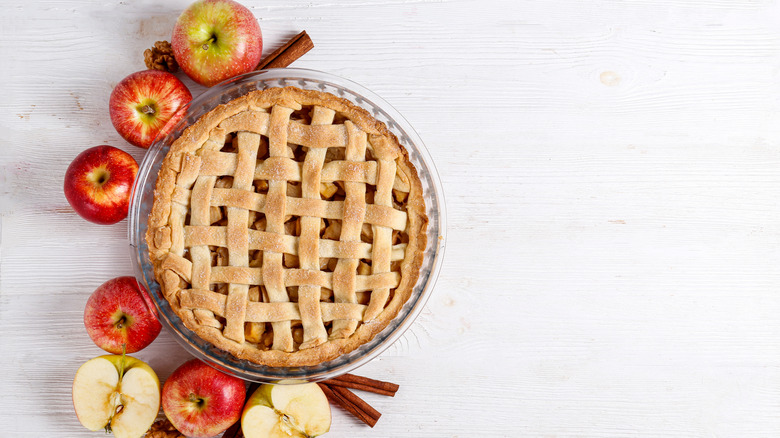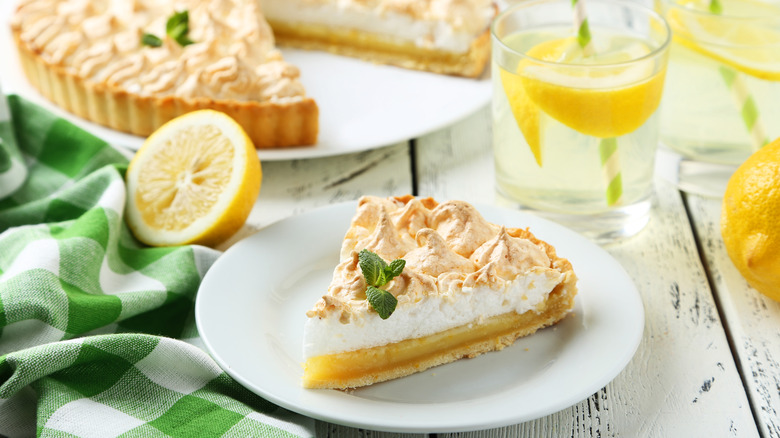The Reason You Should Bake Pie In A Clear Tin
Even for home bakers that know their way around a recipe, pie can be a bit of a challenge. First of all, you need to be hypervigilant that your butter is as ice cold as possible when you're forming that dough, in order to get that flaky texture you're looking for. Then, you need to get that chilled dough into the pie tin without ripping it. Finally, you have to either blind bake or fill your crust, and cross your fingers that it gets perfectly browned rather than falling on either end of the spectrum and becoming either soggy or burnt.
Well, if you want to make your pie-crafting process a whole lot easier, there's one simple swap you can make, and it has nothing to do with ingredients. It's all about the equipment you choose to use. As with many other types of baking dishes, you have quite a few options when looking for a pie plate. Depending on your preferences and the type of dessert you're making, you can go for a thin aluminum tin, a heavy ceramic plate, a glass one, or even a disposable option. If you're interested in flawless pies every time, there's an obvious winner — clear glass pie tins. They offer a few different benefits that will help ensure your pie turns out exactly the way you want it to.
The perks of clear glass tins
Martha Stewart refers to glass pie tins as "akin to an insurance policy" in pie baking because of how much they can help in obtaining the perfect bake. The primary reason bakers favor clear tins and perhaps the most obvious, is the simple fact that you can see exactly how the crust is looking at any given moment — no guesswork required. If you see a crust that looks too pale, you know it needs a bit more time in the oven without having to take it out to check. And if your timer is still running, but that crust is looking perfectly golden-brown, you know to pull the pie out a few minutes early.
This simple visibility test helps prevent a lot of issues, such as soggy or overcooked crusts. Second, while metal tins heat up much more quickly and conduct heat more efficiently, glass actually heats very evenly and slowly. This means you may have to bake your pie for a bit longer, but you should get a more consistent bake. However, you may need to make a few minor adjustments when using a glass tin. Our Everyday Life suggests lowering the temperature by 25 degrees Fahrenheit, and Nick Malgieri, director of baking programs at the Institute of Culinary Education in New York, suggests adding a pinch of baking powder to your dough to help prevent shrinking or sliding of the crust (via The New York Times).

